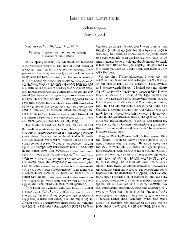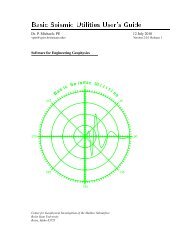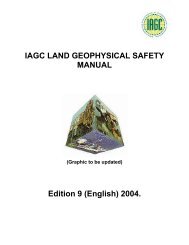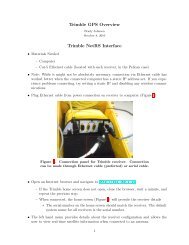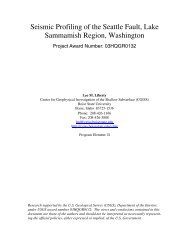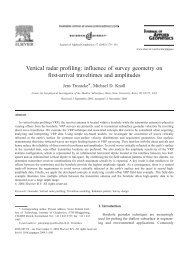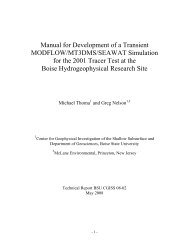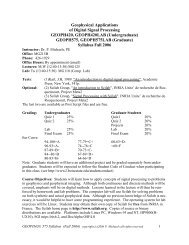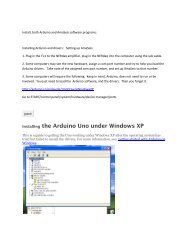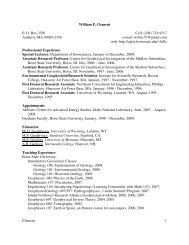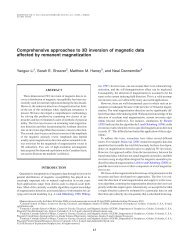Chapter 9 - Instructional Media: Chalkboards to Video - CGISS
Chapter 9 - Instructional Media: Chalkboards to Video - CGISS
Chapter 9 - Instructional Media: Chalkboards to Video - CGISS
You also want an ePaper? Increase the reach of your titles
YUMPU automatically turns print PDFs into web optimized ePapers that Google loves.
Leslie C C C C C C W C C W<br />
Jerome C C C C C C W C C C<br />
Nancy C C C C C C W W C W<br />
Judith C C W C C C W W W W<br />
Ralph C W W W C C C W W W<br />
Beth C C W W W W W W W C<br />
Donald C W C C W C W W W C<br />
# Correct 9 7 7 8 6 9 1 5 5 5<br />
# Wrong 1 3 3 2 4 1 9 5 5 5<br />
Difficulty<br />
Index .51 .76 .78 .84 .73 .86 .59 .70 .73 .73<br />
Discrimination<br />
Index -.7 .2 .3 .2 .3 .1 .9 .5 .5 .5<br />
C =<br />
W =<br />
Correct<br />
Wrong<br />
[Adapted with permission from: Teaching at the Ohio State University: A<br />
Handbook. Center for Teaching Excellence (1990).]<br />
Cheating on<br />
Tests<br />
The University has an Academic Honor Code that calls for the<br />
coordinated efforts of faculty members and students <strong>to</strong> uphold<br />
academic integrity and combat academic dishonesty, including<br />
cheating and plagiarism. The Academic Honor Code includes<br />
descriptions of violations of the code, statements of student and<br />
faculty responsibilities for upholding the code, and explanations of<br />
academic penalties for violating the code. A description and<br />
information of the Academic Honor Code can be found in the<br />
current Student Handbook.<br />
Preventing Cheating<br />
• Reduce the pressure.<br />
The first action you can take is <strong>to</strong> reduce the pressure on<br />
students. While you cannot influence the general academic<br />
atmosphere that places heavy emphasis on grades, you can<br />
influence the pressure in your own course. One method <strong>to</strong><br />
accomplish this is <strong>to</strong> provide students with several<br />
opportunities <strong>to</strong> demonstrate their achievement of course<br />
objectives rather than relying upon a single examination.<br />
• Make reasonable demands.<br />
A second way <strong>to</strong> reduce cheating is <strong>to</strong> make sensible<br />
demands. Write fair tests and design reasonable assignments.<br />
Some cheating is simply the result of frustration and<br />
desperation arising from assignments that are <strong>to</strong>o long <strong>to</strong> be<br />
completed adequately or tests that require the memorization of<br />
trivial information. Remember, some students view cheating as<br />
a way of getting back at an unreasonable instruc<strong>to</strong>r.<br />
Section: Student Assessment 174 <strong>Chapter</strong> 12: Testing Issues



